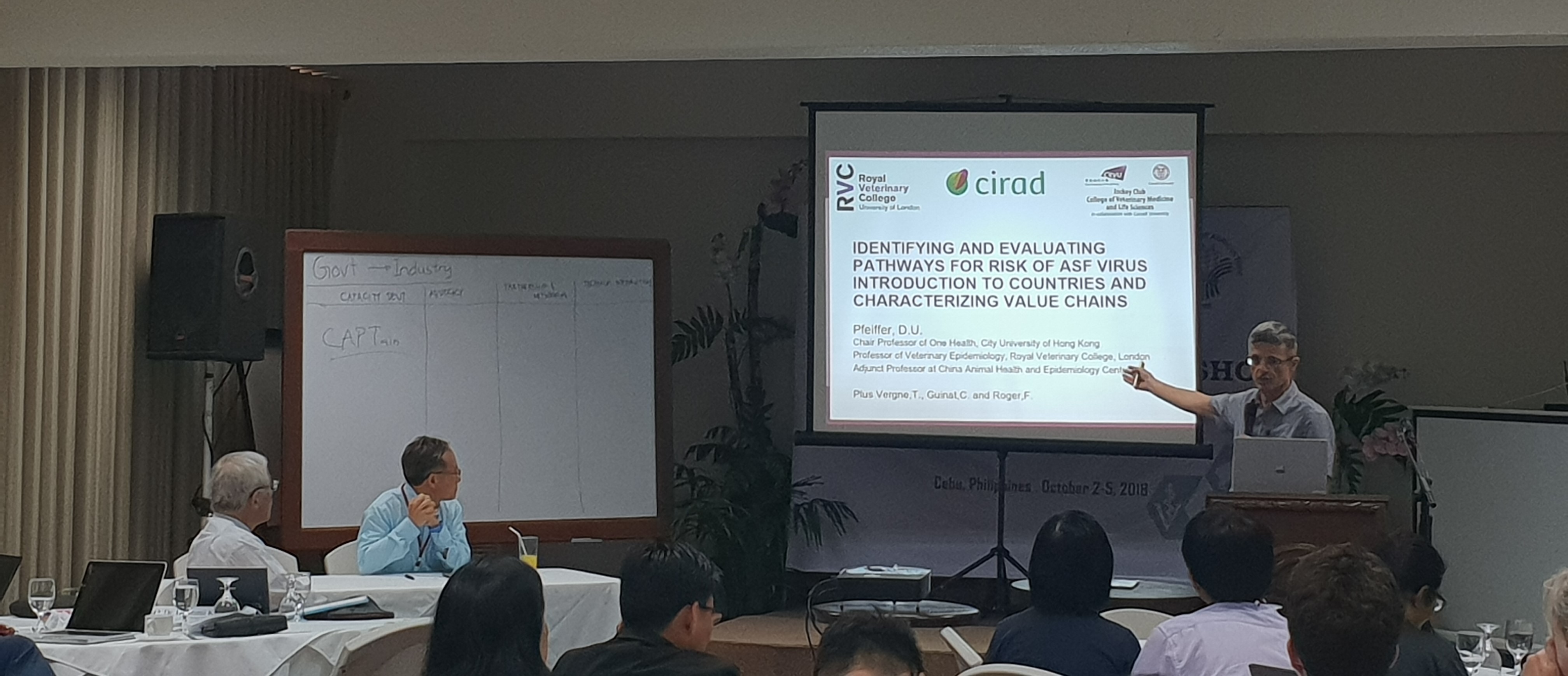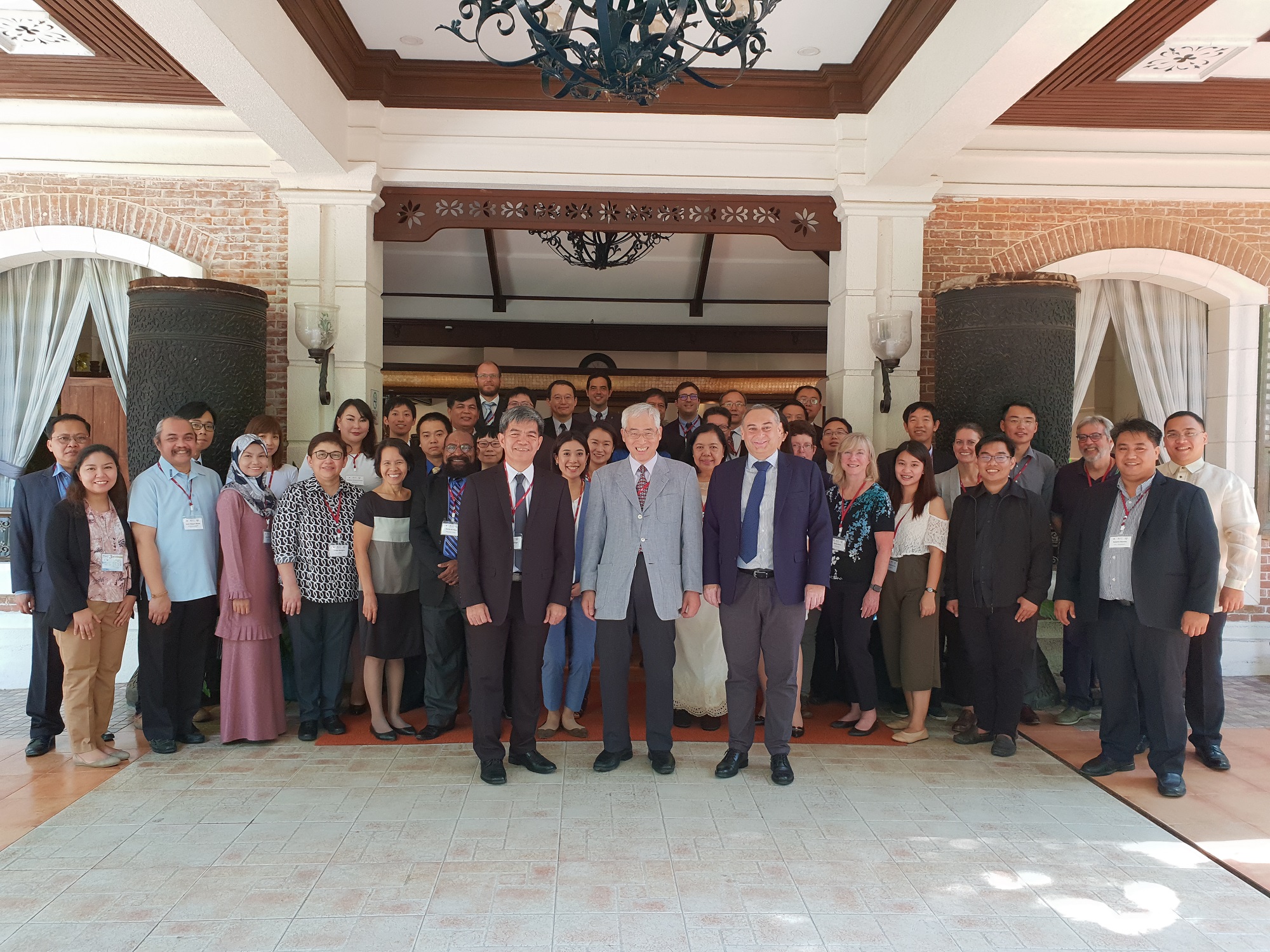The OIE Regional representation for Asia and the Pacific has been organizing workshops on swine disease control since 2014 with support from P.R China and the Food and Agricultural Organization regional office for Asia and the Pacific (FAO-RAP) and emergency centre for transboundary animal diseases (ECTAD).
There are several high impact emerging and endemic swine diseases in Asia and with the spread of African swine fever in P.R China since August, regional coordination and information sharing is even more critical.
African swine fever experts from Europe and P.R China shared experience and advice with participants working on swine health from government, university and the private sector from across Asia and the Pacific. Experts highlighted that early detection can be challenging and recommended strengthening clinical surveillance and disease reporting to improve capacity for early detection. Laboratory sampling should target pigs with suspect clinical signs, so a good understanding of case definition is needed. Good biosecurity practices are also the most effective way to prevent introduction of ASF onto a farm.
The swine industry was examined across the region to identify the major risk factors in the spread of transboundary swine diseases.
The need for collaboration across sectors on issues such as disease control, improving production, new technology, antimicrobial usage, biosecurity, value chains and trade was also addressed with each sector providing insight into where and how this could occur.
The final day was a dedicated workshop organized jointly with FAO and facilitated by ASF experts to address some of the identified risk pathways, strategies for early detection and response and identify critical gaps in the level of preparedness for African swine fever in the region.

